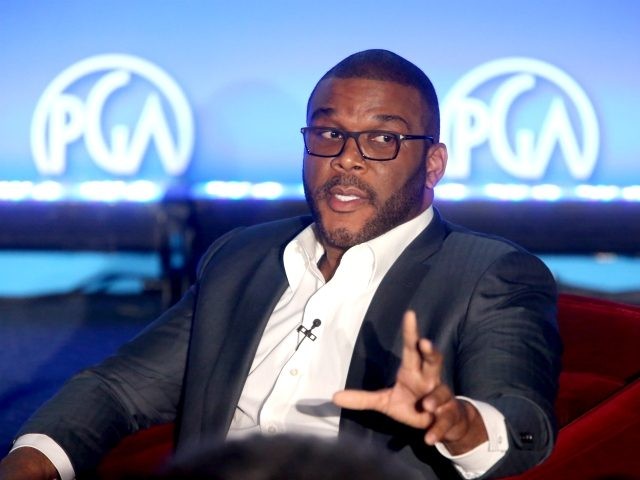Media mogul Tyler Perry became a household name as a self-made man in a hostile Hollywood industry, but according to the world-renowned entertainer Hollywood was nothing compared to the hostility he faced from his black peers.
The new documentary, Maxine’s Baby: The Tyler Perry Story, explores the filmmaker’s story, from his abusive childhood to his subsequent success. Though it regularly explores Tyler Perry’s ingenuity, one particular section has been catching some media attention: the criticism he received from the black community, which he says hurt the most.
“I think the most difficult part in all of the success wasn’t battling Hollywood; it was Black people,” Perry says in the doc, as reported by The Messenger. “There’s a certain class of Black people who look down on all things Tyler Perry.”
For instance, filmmaker Spike Lee referred to Tyler Perry’s work as “coonery buffoonery” along with scholars like Donald Bogle and Jamilah Lemieux, who wrote in an open letter to National Public Radio that Perry’s work features “old stereotypes of buffoonish, emasculated Black men and crass, sassy Black women.”
Lemieux went on to argue that Perry’s character, Madea, disrespects the classic black grandmother matriarch, which was seriously portrayed in movies like Soul Food and lampooned in movies like Big Momma’s House.
“Through her, the country has laughed at one of the most important members of the Black community: Mother Dear, the beloved matriarch. … Our mothers and grandmothers deserve much more than that,” she wrote of Madea.
“I don’t think that Tyler Perry entered the creative marketplace to save the Black community,” says acclaimed poet and author Carl Hancock Rux in the documentary. “And if he did, I think he would have actually come fully armed, which he did not.”
Perry reflected on the pain this caused him.
“When I started to look at the history of what we’ve done to each other as Black people, others who are successful, it’s pretty interesting to see,” he says in the film. “Amos and Andy was the first African Americans on television, and it was the NAACP who boycotted; the first television boycott ever. So the show was yanked off the air in 1953, and there was not another Black cast on television until the late 1960s.”
Perry also recalled how the NAACP boycotted the Oscar-nominated movie The Color Purple.
“They were picketing outside the Oscars,” Perry says in the doc. “Langston Hughes called Zora Neale Hurston a ‘new version of the darkie’ because she spoke from a Southern dialect and she wrote in that dialect. So I learned very early on that it’s OK. This is how it goes. No matter how well or good your intention is, no matter how many people it freely lifts out of despair and sadness, it only matters to certain critics if it is what they deem to be art.”
At least one prominent black artist defended Perry’s work: rapper Killer Mike.
“The audience is there. He paid attention to an audience that people ignored and were saying, ‘Come up to us.’ And he said, ‘No, I’m down here with you’ … We’re gonna laugh at the things that we laugh about amongst family gatherings. We’re going to make public the things that we think of as joking,” Mike says in the documentary.
Paul Roland Bois directed the award-winning feature film, EXEMPLUM, which can be viewed for FREE on YouTube or Tubi. A high-quality, ad-free stream can also be purchased on Google Play or Vimeo on Demand. Follow him on Twitter @prolandfilms or Instagram @prolandfilms.

COMMENTS
Please let us know if you're having issues with commenting.